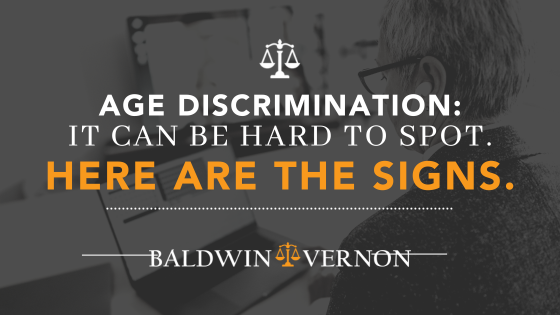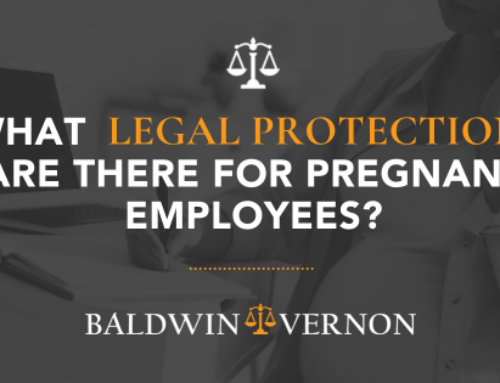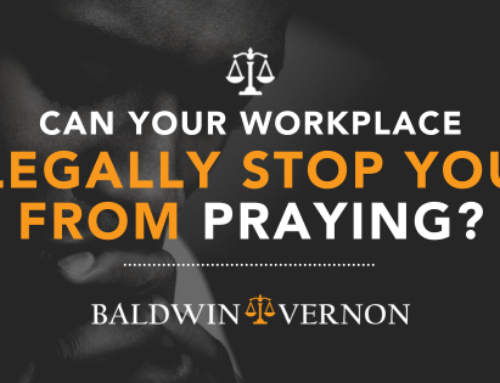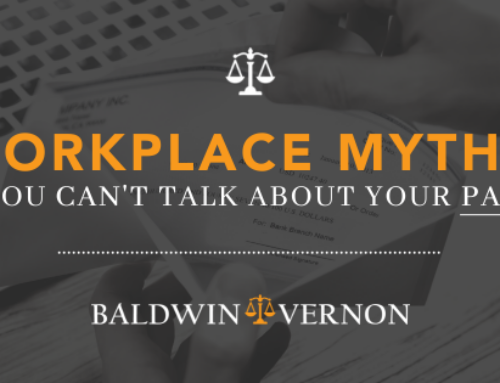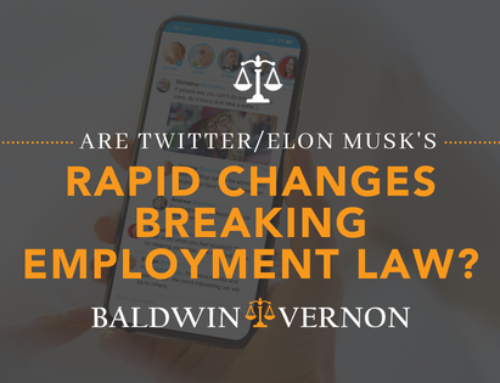You might not be ready to hang up your cape just yet, but the people around you might think differently. Age discrimination is becoming a more significant issue as new generations are flocking to jobs and making up a higher percentage of workers in certain industries. Whether intentional or not, age discrimination can happen to anyone over 40 and can blindside anyone who is affected by it.
Age is the one protected category that crosses all others – race/religion/national origin/
sex/disability/ethnicity. Everyone ages, and as we age, the likelihood of age discrimination grows increasingly likely. Couple that with a disability and/or stereotypes for certain industries, and an employee can suddenly find themselves in unfamiliar territory of struggling to hang on to a job or career in which they had previously and may still be successful.
Don’t be blindsided. Gain a better understanding of age discrimination and what to look out for when you walk into work the next time.
What’s Considered Age Discrimination
The Age Discrimination in Employment Act (ADEA) was enacted in 1967, making any harassment or discrimination that is found to be based on age illegal. This act protects people starting at the age of 40 against any discrimination during the hiring, firing, promotion, and delegation of tasks processes. The State of Missouri has even stronger protections under the Missouri Human Rights Act. If you are discriminated against in employment in Missouri, we always try to pursue your rights under the MHRA in State Courts.
Age discrimination continues to be a rising epidemic for many people as working boomers grow older in their industries. It was found that two out of three people over the age of 45 have seen or experienced age discrimination in their workplace in a survey done by AARP. Age discrimination is a more challenging bias to spot and may go under the radar more than other forms of discrimination. So, it is important to know what it looks like and stop it before it affects workers.
Signs to Look for:
With age discrimination covering anyone 40 years or older, much of the working class is protected under the act, meaning that much of the working class is also vulnerable to discrimination. Here are some ways to spot this harassment in the workplace.
Your Tasks Start to Change
This can look like two different scenarios. The first scenario is that your tasks seem very easy, and your workload lacks the more challenging projects. This might be a manager’s way of “lightening the load” without talking to you first. This assumption that you can’t handle or don’t want the challenging and more demanding tasks as before can be considered discrimination.
Second, you could be handed some of the more unpleasant tasks. These tasks might not even be within your working title, but you could start to see that you are given the menial and unnecessary tasks that an intern would do instead of a salaried employee. While this could be excused for being short-staffed, it is important to note the change. It may be a situation where you are also given tasks meant to “shame” you or diminish your stature or respect before your peers. It may be an attempt to get the older, more senior, and established employee to resign or quit.
If this happens to you or a co-worker, keep a record of these changes and developments. While these actions themselves can not be sueable, they can be considered evidence in a larger picture.
A Pattern Evolves on Who Is Being Hired
You might’ve heard the term “culture fit” in recent years. This isn’t a real term; it is a way to make hiring younger employees while firing or buying out older employees seem moral and legal. In actuality, this could be a pattern and/or practice of discrimination. If you see a pattern of only younger generations being hired and your older counterparts being let go or offered buyouts, it is something to note immediately. While, yes, younger generations will be hired, there should be a solid mix of younger and older based on experience and education, not just their age. Once again, this is a sign to watch out for a record if you see it becoming suspicious. This in itself is not an actionable claim of age discrimination, but it can be an additional piece of evidence.
Unpleasant Comments About Your Age
Lastly, you can often spot age discrimination based on what is being said to you by managers, leaders, or fellow coworkers. Even comments with a laughing tone, such as, “Say, when are you going to retire?” can strongly indicate age discrimination. Age-related comments in general, for example, if you are teased about not knowing about the latest social media platform or if you have a simple question about how to do something, and they are answered with some sort of jab at your age, make sure to document everything as this can be seen as evidence toward possible age discrimination if something more significant happens.
You Don’t Get the Promotions or Raises You’ve Expected
If you were passed up for a promotion and it was given to a younger worker with fewer qualifications for the new title, you may have experienced age discrimination. It is as simple as that. Promotions and raises should not be based on age or outside factors and should be decided based on merit, performance, or experience. Additionally, if you stop seeing your usual raises even after having a great sales year and exceeding goals, this could become solid evidence of discrimination in the larger picture. In both of these instances, take notes and gather documentation before you make any complaint to HR. Remember, HR works for the company and to protect the company.
Not getting the expected promotion can be aggravating, but this on its own is not enough to file for age discrimination. However, if this goes a step further and you are disciplined in ways that decrease your pay, give you a less desirable schedule, or even get you terminated, then these could be actions to take to an attorney to file for discrimination along with the rest of the evidence you have accumulated from the situations listed above.
Age discrimination, like other forms of discrimination, should not be tolerated. You have the right to protect yourself in these circumstances, and if you feel as if your workplace is singling you out based on your age, you can do something about it. You can file a claim with the U.S. Equal Employment Opportunity Commission, as well as file a lawsuit with an attorney against your workplace. Don’t let yourself be discriminated against; do something about it to protect yourself and those around you.
If you have further questions or have experienced age discrimination, contact the team at Baldwin & Vernon.


